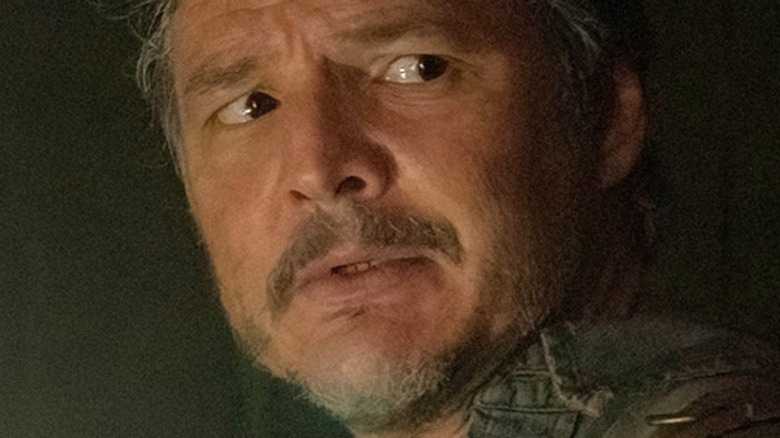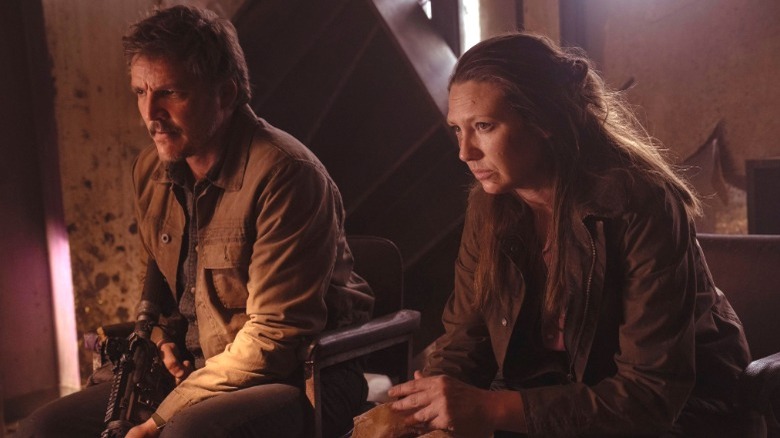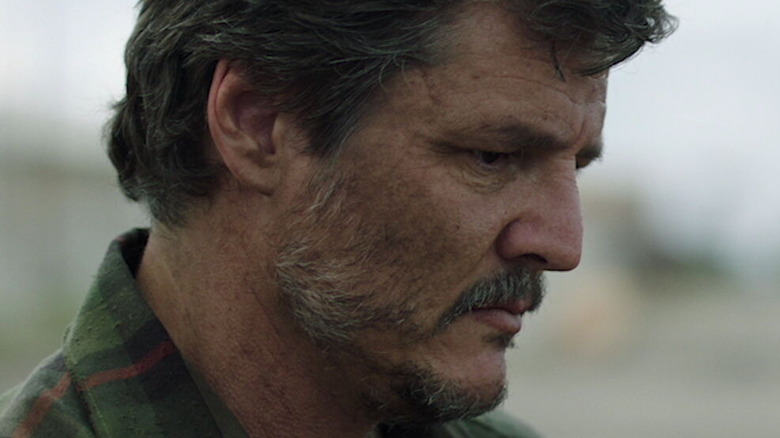The World Has Changed Since The Last Of Us Games Debuted (& Why That Matters)
Contains spoilers for "The Last of Us" Season 1, Episode 2
It's incredible to think that it's been a decade since gamers were introduced to Joel and Ellie, the postapocalyptic wandering heroes who are forced to unite in the beloved survival action-adventure game "The Last of Us." Since then, there have been plenty of attempts to adapt it into a different format, but now HBO is finally giving it to us in the form of a brand-new series — and doing a pretty good job in the process. That being said, a lot has happened since Joel first went toe-to-toe with a Clicker in the original PlayStation title, and in a way, it's almost worked for the better that it has finally arrived when it has.
Like it or not, what the show has delivered so far even in its two episodes is setting a mark that all future video game adaptations will need to meet. This isn't a weekly chunk of fan service, but a solid retelling of an already perfect tale that initially came with a health bar and a pause menu. Wherever it goes in the future, there's no doubt that projects like Amazon's "God of War" or Netflix's "Assassin's Creed" will try to meet it. Even if they do, though, "The Last of Us" has something that manages to strike a nerve that other video game adaptations might miss and even other end-of-the-world stories will struggle to hit as hard in the future.
The most chilling element of The Last of Us refers to something we're all too familiar with
For better or worse, film and television have often adapted to the world-changing events that have altered audiences' perspectives and the fears that have grown from them. 9/11 saw thrillers shift to threats hiding in plain sight, with an increase in espionage stories ("24," the "Bourne" franchise"), whereas horror has been a genre that has adapted to invoke audiences' real-life fears for decades. The threat of nuclear war sparked greater talk of postapocalyptic worlds and creatures created from the fallout of such. On "The Last of Us," there's a keyword that has already been alluded to more than once that might have unsettled fans who didn't expect it.
It's easy to split fact from fiction the second we see Joel (Pedro Pascal) running from a part-mushroom-looking mutant, but some of the most notable fear-inducing moments have conjured the word "pandemic." Breaking down the fungus that has consumed this world might be fantastical, but using terminology that has become far more prominent in our language since COVID will undoubtedly spark a reaction. It's not the first time horror has applied these kinds of observations. John Carpenter's "The Thing" was considered an allegory for the AIDS epidemic back in the '80s, where the most intense scene is the iconic blood test, revealing a threat that is uncovered from a Petri dish (via Inverse). "The Last of Us" could push similar buttons not just now but also in the show's finale.
Ellie's future might spark familiar fears from real-world events
Contains spoilers for the video game "The Last of Us," from which the HBO series "The Last of Us" was adapted
Joel's endgame on "The Last of Us" is to get Ellie Williams (Bella Ramsey) to the Fireflies so that she can help in providing a cure. Of course, as history would dictate in similar stories like this, the destination often leads to a dead end and hopes are dashed. Think of the failed drive to the blockade in "28 Days Later" or Furiosa's (Charlize Theron) dreams of the Green Place crushed in "Mad Max: Fury Road." If the show follows the game, we could reach a similar outcome since in the original story, Ellie comes close to being experimented on before Joel comes to her rescue. Sure, that might be a similar story to others that have come before, but those weren't released at the same time as a historic event that put the entire planet on hold.
While the show is so far doing great at tapping into the tension and survival horror element that the game is rife with, we could see it eventually etching into a level of paranoia that has every chance to press on still prominent anxieties. Add to the fact that Craig Mazin, creator of the heavily unsettling show "Chernobyl," has helped map out this new story, and this is what could separate "The Last of Us" from being just another zombie horror.


